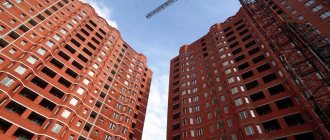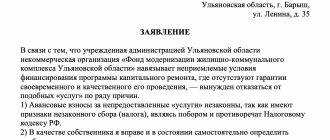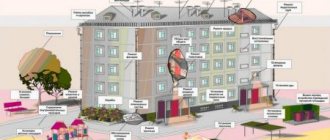Unfortunately, all attempts to overturn the decision to introduce fees for major home repairs through the highest courts were unsuccessful: in 2021, the Constitutional Court of the Russian Federation recognized the legality of this measure (resolution No. 10-P dated April 12, 2016).
And yet, the law allows in some cases to be exempt from paying contributions for major repairs not only partially, but also completely.
Let's consider who this year can take advantage of benefits for a partial reduction in contributions for major repairs, and who can not pay for it at all.
Law on major repairs of new buildings
The rules for carrying out major repairs in apartment buildings determine:
- housing code of the Russian Federation;
- Federal Law No. 271-FZ “On Amendments to the Housing Code of the Russian Federation and Certain Legislative Acts of the Russian Federation.”
You need to rely specifically on the Housing Code, Section IX. And Federal Law No. 271 fixes changes in it.
There is no separate law or code articles on the renovation of new buildings. Because the start time for collecting contributions to the Capital Repair Fund (hereinafter referred to as the CRF) depends on the timing of the inclusion of the house itself in the regional program and on the general technical condition of the housing.
But more about this below.
Which houses are considered new buildings
Typically, new buildings are considered to be houses built 2-3 years ago. Maximum – 5 years.
But a more accurate definition is purchasing them from the developer: be it a construction company or an individual with whom an agreement has been concluded on the assignment of the right to shared construction.
If ownership of the apartment has already been registered, then it is considered secondary. Let them live there for one day.
Sometimes houses after reconstruction can be considered new buildings. But this is possible if after it the number of apartments in the building or the entry about it in the Unified State Register has changed, or a new cadastral number has been assigned.
However, this situation is rather an exception to the rule. Typically a new home is a home from a developer.
Blog
Photo source: https://www.pexels.com/
The problem of debts for residential premises of the municipal housing stock has been facing the UO for a long time. Often, the owner (local self-government self-government) does not fulfill the obligation to pay for housing and communal services, citing the fact that the premises have been transferred for use to other persons and the obligation to pay lies with the latter.
A similar situation arose with the management organization Talnakhbyt LLC.
In 2015, an agreement for the management of the controversial apartment building was concluded between the Administration of the city of Norilsk, which is the owner of the residential and non-residential premises of the apartment building, and the management authority.
Meanwhile, the Administration did not fulfill its obligations to pay for housing and communal services provided. With a claim dated February 26, 2020, the Administration was asked to repay the resulting debt as soon as possible.
In response to the claim, the Administration of Norilsk indicated that during the disputed period, residential premises No. 28 were transferred under a lease agreement to the OktaStroy company, therefore, during the disputed period, the obligation to pay fees for the maintenance and current repairs of common property in an apartment building was assigned to the tenant .
Not agreeing with these arguments, the Management Office filed a claim against the municipal institution of the administration of the city of Norilsk to recover 48,301.77 rubles in debt for services rendered for the maintenance and routine repairs of common property in an apartment building and 1,175.53 rubles as a penalty for late payment.
During the consideration of the case, the administration indicated that in the period from January 21, 2013 to January 21, 2020, residential premises No. 28 were transferred under a lease agreement to OktaStroy LLC, therefore, during the specified period, the obligation to pay fees for the maintenance and current repairs of common property in an apartment building are assigned to the tenant. At the same time, the obligation to pay fees for the maintenance and current repairs of common property in an apartment building for the period from 01/21/2020 to 01/31/2020 in the amount of 4,464.73 rubles. executed by the defendant.
Clause 2.2.5 of the said agreement obliges the tenant to, within five working days from the date of state registration of the agreement, conclude a management agreement for the apartment building with the management organization chosen by the owners of the premises in the apartment building, the homeowners' association.
The debt for the services provided by the management for the maintenance of the common property of the apartment building arose in the period from 08/01/2019 to 01/31/2020.
It is noteworthy that the Tenant entered into a management agreement with the management company, but terminated it early - from 08/01/2019.
The Arbitration Court of the Krasnoyarsk Territory, by decision dated July 15, 2021 in case No. A33-15359/2020, satisfied the requirements of the UO in full, indicating that from a systematic interpretation of the rules enshrined in Articles 210, 249 of the Civil Code of the Russian Federation and Articles 39, 153, 154, 158 of the Housing Code of the Russian Federation, we can conclude that the law directly establishes the obligation of the owner of premises in an apartment building to bear the burden of expenses for the maintenance and repair of common property in an apartment building, expenses for utility services, by paying for the residential premises.
The trial court also noted the following:
“By virtue of paragraph two of paragraph 3 of Article 308 of the Civil Code of the Russian Federation, an obligation can create rights for third parties in relation to one or both of its parties only in cases provided for by law, other regulations or agreement of the parties. The current legislation does not contain rules that entail the obligation of the tenant to pay for utility services to the third party providing them (the provider of such services, the resource supplying organization).
The tenant's obligation to maintain the property in good condition and bear the costs of maintaining the property (clause 2 of Article 616 of the Civil Code of the Russian Federation) is established in relations with the lessor, and not with the provider of the above services or the resource supply organization, which is not a party to the lease agreement.
The management organization (provider of public services, resource supplying organization), in the absence of an agreement concluded with it, does not have the opportunity to exercise control over which person actually uses the non-residential premises, including on the basis of a lease agreement.
In such a situation, the general rule applies that in the absence of an agreement between the tenant of non-residential premises and the provider of services (resource supply organization), concluded in accordance with current legislation and the terms of the lease agreement, the obligation to pay for such services lies with the owner (lessor) of the non-residential premises.
Considering the fact that the agreement for the management of an apartment building with the tenant of the premises dated 04/16/2013, concluded between the management company and the tenant of premises No. 28, was terminated on 08/01/2019, the court, taking into account the above legal regulation, rejects the argument stated by the defendant that he has no obligation for payment during the period from 01.08.2019 to 20.01.2020 of payment for the maintenance of the common property of an apartment building...”
The appellate court agreed with the arguments of the first instance court; the decision of the Third Arbitration Court of Appeal dated September 15, 2021 No. 03AP-4311/20 in case No. A33-15359/2020 was upheld.
The administration did not stop and filed a cassation appeal, following the consideration of which the Arbitration Court of the East Siberian District saw in the actions of a person who was not a party to the dispute (the tenant) an abuse of rights and made an unexpected decision: the judicial acts of the first and appellate instances were canceled, in satisfaction the claim was denied.
Canceling judicial acts, the Arbitration Court of the East Siberian District in the Resolution of December 14, 2021 No. F02-6002/20 in case No. A33-15359/2020 indicated the following:
“In satisfying the stated requirements, the courts of first and appellate instances proceeded from the validity of the claim in law and in size. At the same time, the courts came to the conclusion that it is the administration, as the owner of the residential premises, by virtue of Articles 210, 249 of the Civil Code of the Russian Federation, Articles 39, 153, 154, 158 of the Housing Code of the Russian Federation, which is obliged to pay for the services of the management authority for the period from 01.08.2019 to 20.01.2020, since the agreement for the management of an apartment building, concluded between the tenant - the OktaStroy company and the management company, dated 04/16/2013, was terminated by the parties on 08/01/2019 by agreement.
Meanwhile, the conclusions of the courts were made with a significant violation of the norms of substantive law due to the following.
According to Article 210 of the Civil Code of the Russian Federation, Article 153 of the Housing Code of the Russian Federation and taking into account the legal position of the Presidium of the Supreme Arbitration Court of the Russian Federation, specified in the resolution of April 12, 2011 No. 16646/10, tenants of residential premises of the state or municipal housing stock from the moment of conclusion of the corresponding Rental agreements are required to pay rent and utilities on time and in full.
In addition, the tenant is obligated to pay the cost of services provided and work performed for the proper maintenance and repair of common property if an agreement is concluded directly with the management organization.
As a general rule, relations arising from an agreement can only be extended to the parties to this transaction. An obligation does not create obligations for persons not participating in it as parties (clause 3 of Article 308 of the Civil Code of the Russian Federation).
Accordingly, the contractual terms for terminating the management agreement for an apartment building dated April 16, 2013, agreed upon between the tenant and the management company, cannot automatically apply to relations with the owner of the residential premises, since the latter is not a party to this agreement.
In accordance with Article 10 of the Civil Code of the Russian Federation, the exercise of civil rights solely with the intention of causing harm to another person, actions in circumvention of the law for an unlawful purpose, as well as other deliberately dishonest exercise of civil rights (abuse of law) are not allowed.
As can be seen from the case materials, residential premises No. 28 were transferred to the owner from the tenant only on 02/07/2020 (Act of acceptance and transfer of residential premises dated 02/07/2020).
Consequently, in the presence of remaining obligatory legal relations under the lease agreement, the tenant’s actions to terminate the management agreement for an apartment building are an abuse of right, which is aimed at worsening the position of the owner of the residential premises. Under the terms of the agreement, the amount of rent was determined without taking into account the costs of maintaining the common property of the apartment building, the obligation to pay for which was assigned to the tenant.
Taking into account the specific circumstances of the case and if there is an established fact that the tenant is in the residential premises, there are no grounds for imposing on the owner the obligation to pay for services for the maintenance of the common property of the apartment building during the disputed period of time...”
In order to protect its interests, the management company had to appeal to the Supreme Court of the Russian Federation, which, in its Ruling dated September 14, 2021 No. 302-ES21-4060 in case No. A33-15359/2020, pointed out the following fundamental points:
“The actions of the tenant aimed at terminating the management agreement for the apartment building dated April 16, 2013 were assessed by the cassation court as an abuse of right, noting that these actions were aimed at worsening the situation of the owner of the residential premises.
The panel of judges cannot agree with these conclusions of the district court due to the following.
By virtue of paragraph two of paragraph 3 of Article 308 of the Civil Code of the Russian Federation, an obligation can create rights for third parties in relation to one or both of its parties only in cases provided for by law, other regulations or agreement of the parties.
The tenant’s obligation to maintain the property in good condition and bear the costs of maintaining the property (clause 2 of Article 616 of the Civil Code of the Russian Federation) is established in relations with the lessor, and not with the utility service provider or resource supply organization, which is not a party to the lease agreement.
In such a situation, the general rule applies that in the absence of an agreement between the tenant of non-residential premises and the provider of services (resource supply organization), concluded in accordance with current legislation and the terms of the lease agreement, the obligation to pay for such services lies with the owner (lessor) of the non-residential premises.
This legal position is reflected in the Review of Judicial Practice of the Supreme Court of the Russian Federation No. 2 (2015), approved on June 26, 2015 by the Presidium of the Supreme Court of the Russian Federation.
Thus, since during the disputed period there was no direct agreement between the tenant and the company on the tenant’s participation in the costs of maintaining and routine repairs of common property in the apartment building, the courts of first and appellate instances reasonably satisfied the company’s demands for the administration as a representative of the property owner.
The district court, concluding that the tenant had abused his rights, actually established circumstances that were not established in the decision or resolution or were rejected by the court of first instance or appeal, thereby violating the requirements of Part 2 of Article 287 of the Arbitration Procedure Code of the Russian Federation...”
As a result, everything ended well for the management company; the debt for the disputed period was collected from the administration in its favor. The decision of the Arbitration Court of the East Siberian District dated December 14, 2020 in case No. A33-15359/2020 was canceled by the judicial panel, and the judicial acts of the first and appellate instances were upheld.
provides legal services to management companies and homeowners associations.
All the necessary information about the service is here .
Major repairs of new apartment buildings up to 5 years
There is such a thing as wear and tear. It would be a mistake to think that if the house is new, then it is too early to think about major repairs.
For example, the service life of an elevator is 25 years. Facade cladding, hot and cold water supply systems - already 10-15. But a seam roof and a soft roof with a bitumen layer will have to be replaced after just 5 years.
That is, after 15-20 years, most structures will become unusable. And to replace them, a significant amount will be needed. Therefore, the sooner the owners start saving money, the easier and better the repairs will be.
If tenants still do not want to pay the fees, then they violate the obligations imposed by Article 168 of the Housing Code.
Do I need to pay for major repairs in a new house, fees?
The first thing owners of apartments in a new building need to do is choose the form of management of the apartment building - a management company or a homeowners' association.
Next, they determine the method of forming the Fund. There are 3 options:
- Shared account with a regional operator.
- A special account with a regional operator.
- Special account for HOAs, management companies, housing cooperatives.
Each method has its own advantages and disadvantages. Therefore, this issue must be considered in detail. For example, if the condition of the house is close to emergency, then it is better to choose a general account with a regional operator. Because then the money is allocated to repair houses that need it first.
The special account allows for greater flexibility of funds. Residents can save money and manage it. They have the right, having saved a sufficient amount, for example, to use it to replace the heating system. Next time, cover the roof. But the owners also have a great responsibility.
After all these organizational measures, the house will be included in the regional capital repair program. The program is updated annually. According to Article 168 of the Housing Code, it does not include houses with more than 70% deterioration or if the amount of major repairs exceeds the limit in the region. Such houses are recognized as unsafe, or the issue of reconstruction is being considered.
But if the house has not yet been included in the capital repair program, and payment is already being collected, this is illegal. You need to complain to the local administration, police, prosecutor's office.
For owners of apartments in new buildings, Article 170 of the Housing Code provides for deferred payments. That is, the house is included in the program, and contributions begin to be paid after some time. Maximum – 5 years.
Each region has its own deferment period . The hardest thing is for Muscovites - there is no deferment for them, just like for St. Petersburg residents. Both in Moscow and St. Petersburg, fees for major repairs in new buildings are charged completely legally, no deferment is provided. In the Tyumen region - 4 months. And in Samara and Novosibirsk the maximum period is 5 years.
How old does a house have to be to pay for major repairs?
As we can see from the text above, a lot depends on the region of your residence. But there are also “loopholes” that will help you defend your rights even in the capital.
What to do if in the region the deferment is accepted, for example, 1 year, but the house is under warranty from the developer for 5 years. After all, if a third party intervenes in the building structures or engineering systems of the building, the warranty will be void.
Then the owners have the right to write an application for deferment. All owners of apartment buildings must vote for this at a general meeting of residents.
The application is written to the regional administration. It provides arguments why owners are asking to defer contributions for major repairs.
The housing commission evaluates the condition of the house and makes a decision. If the answer is no, then payment begins.
Please note that deferment of payments for major repairs is only possible if the house was put into operation no more than 5 years ago.
Is it legal?
Despite the changes that have been made regarding the lack of payments in the first years after the delivery of the house, some management organizations continue to charge these payments in new buildings .
Many organizations responsible for the repair and maintenance of the house thus form a so-called “control cushion” in case the period allotted by the legislation of the subject expires, and a breakdown occurs in the house - immediately stand in line for major repairs.
But many collect these payments illegally , thereby lining their pockets. Unscrupulous management organizations often do this.
Only the legislation of the subject may allow the collection of payments ahead of schedule in connection with special cases, for example, if it turns out that the new house has a major defect.
also collect payments from the owners themselves before the deadline expires . This is done in order to form a utility repair fund as early as possible in case of unforeseen breakdowns (we talked about the formation of the fund here).
How to pay for major repairs in a new house
No less than 3 months before the start of payments, the owners at a general meeting decide on the method of forming the FCR (options were described above). Other organizational issues are also addressed:
- amount of contributions;
- fund size;
- list of priority and secondary works.
Subjects of the Russian Federation set their own minimum tariffs . Then the total number of apartment buildings, their technical condition, the relationship with utility bills, and the degree of state support are taken into account.
In Moscow in 2021, a tariff of 18.19 rubles per square meter has been established. In Yekaterinburg – 9.36 rubles. And in the Republic of Mari El – only 5.20.
But owners can increase the monthly payment, for example, when saving for a certain type of work.
Separate receipt
The contribution for major repairs is included in the general receipt for utilities. The form of the payment document was approved by Order of the Ministry of Construction No. 43 dated January 26, 2021.
However, the same ministry, in a letter dated July 7, 2014 “On certain issues arising in connection with the implementation of the legislation of the Russian Federation on the organization of major repairs...” officially secured the right of owners to receive a special receipt specifically for major repairs. This must be voted on by the owners at a general meeting.
A separate receipt states:
- area of the home;
- contribution amount per square meter and for the entire apartment;
- benefits, penalties, debts;
- total amount.
By the way, starting from 2021 in Moscow and the Moscow region, all charges for major repairs are made only by MosOblEIRTS. The contracts with other agents of the capital repair fund have been terminated. And if the management company does not have an agreement with this organization, then they receive a separate receipt for major repairs every 3 months.
Limitation period for debt collection
The question arises: if recalculation and return of money for contributions for major repairs can be done for debts arising from January 1, 2013, then will the statute of limitations be violated?
No, it will not. The limitation period begins from the day when the person learned or should have learned about the violation of his right (Article 200 of the Civil Code of the Russian Federation). In our case, it begins from the date of entry into force of the new edition of Part 3 of Art. 158 of the Housing Code of the Russian Federation, that is, from July 30, 2021, and is 3 years.
Old court decisions that have already entered into force can be revised based on new circumstances (Article 392 of the Code of Civil Procedure of the Russian Federation). Therefore, one of the options for collecting debt from previous owners is to involve them as an appropriate defendant in the framework of the proceedings on newly discovered circumstances.
In order to review the case, it is necessary to submit an application within three months from the date the grounds for review are established. In our case, from the date of entry into force of No. 257-FZ until October 29, 2017.
After October 29, 2021, if the former owners refuse to voluntarily repay the debt on contributions for major repairs since 2013, the debt can be collected according to the rules of claim proceedings.
Explanation of the tariff for “maintenance and current repairs of common property”
Receipts for housing and communal services indicate fees not only for major repairs, but also for current ones. What is the breakdown of this payment?
It is necessary to distinguish between 2 types of repairs - major and current.
Current repairs and maintenance of the common property of the apartment building include:
- preparation for the heating season;
- minor and cosmetic repairs (such as painting the walls of the entrance);
- preventive measures to support the performance of engineering systems;
- emergency work;
- sanitation;
- landscaping.
For example, if a window in the entrance is broken, it will be replaced as part of ongoing repairs. And with a major renovation, new windows will be installed in all entrances. During current repairs, they will replace the broken step, and change the floor during major repairs.
It should be noted that for the normal functioning of all systems, both types of work are required.
Procedure for receiving recalculation
To receive a recalculation or return previously paid amounts of contributions for major repairs, the new owner of the premises submits an application and provides documents confirming the data specified in the application and ownership of the premises.
The Ministry of Construction of the Russian Federation says that so far few of the owners who are faced with such a situation know about their possibilities. Therefore, repositories need to approve and place on the main page of their websites:
- procedures for submitting and considering applications from new owners for recalculation or refund of contributions for major repairs,
- forms and composition of submitted documents,
- terms of consideration and decision-making.
If the new owner does not have documents that would confirm that he paid the debt for the previous owner, this is not a reason to worry. The regional operator or organization that charges contributions for capital repairs conducts the inspection independently.
The regional operator will open a new personal account for the new owner, with the transfer of actual payments and preservation of obligations to pay the debt of the previous owner on the previous personal account.
How to choose a bank to place capital repair funds
How are funds transferred to the Capital Repair Fund spent?
So, let’s say you regularly pay your dues for major repairs. And now I want to know how much money has accumulated in the house account, and when the actual repairs will take place.
This can be done on the Housing and Communal Services Reform website. Enter your full home address into the search bar. And in the “ overhaul ” tab you will find out all the data you are interested in.
Now a natural question arises: how are these funds spent?
Firstly, for the repair work itself.
According to paragraph 1 of Art. 166 of the Housing Code is repair:
- roofs;
- facade;
- foundation;
- elevator (or its replacement);
- electrical, gas, water, heat supply systems.
Clause 2 of Article 166 supplements the list: insulation, construction of a ventilated roof, purchase of common house metering devices.
Owners have the right to make their own adjustments.
Secondly, the funds are used to pay off loans for major repairs.
It is allowed to take out a loan secured by the Overhaul Fund from a regional operator. The necessary work is being carried out, and the residents are gradually paying off the loan. This option is suitable for houses that urgently need to carry out some repair work (for example, replace the roof), but the required amount has not yet been accumulated.
Residents themselves decide when and on what to spend the funds. The management company or HOA can only provide advice, but they do not have the right to make decisions on their own.
Exemption from major repairs of new buildings, what benefits are provided
For certain categories of the population, benefits are provided when paying contributions for major repairs:
- disabled people of groups 1 and 2;
- veterans of the Great Patriotic War and labor veterans;
- low-income and large families;
- rehabilitated victims of repression;
- Chernobyl victims;
- families with a disabled child;
- people of retirement age (over 70 years old - 50% compensation, over 80 years old - 100%).
It is necessary to distinguish between concepts such as exemption from payment and benefits. Upon release, the person simply does not pay for major repairs. Preferential categories are required to pay them, but the state provides them with compensation.
Each region has its own rules regarding which categories are completely exempt from this obligation and who is paid compensation.
Read more about who is exempt from cap. repairs, read about all the benefits in our article at the link. ⇐
How to receive compensation for beneficiaries
Compensation is submitted to the local administration, the social protection department and the housing department. To obtain it you need the following documents:
- application (the form will be issued on the spot);
- passport;
- documents confirming the right to compensation (pension certificate, disability certificate, etc.);
- payment receipts (before the date of application);
- a certificate of absence of debts for housing and communal services;
- certificate of family composition.
Please note that benefits are accrued only for 36 square meters of living space per person and 56 square meters per family.
You can find out more about benefits of a certain category and in what amount from the city or district administration.









